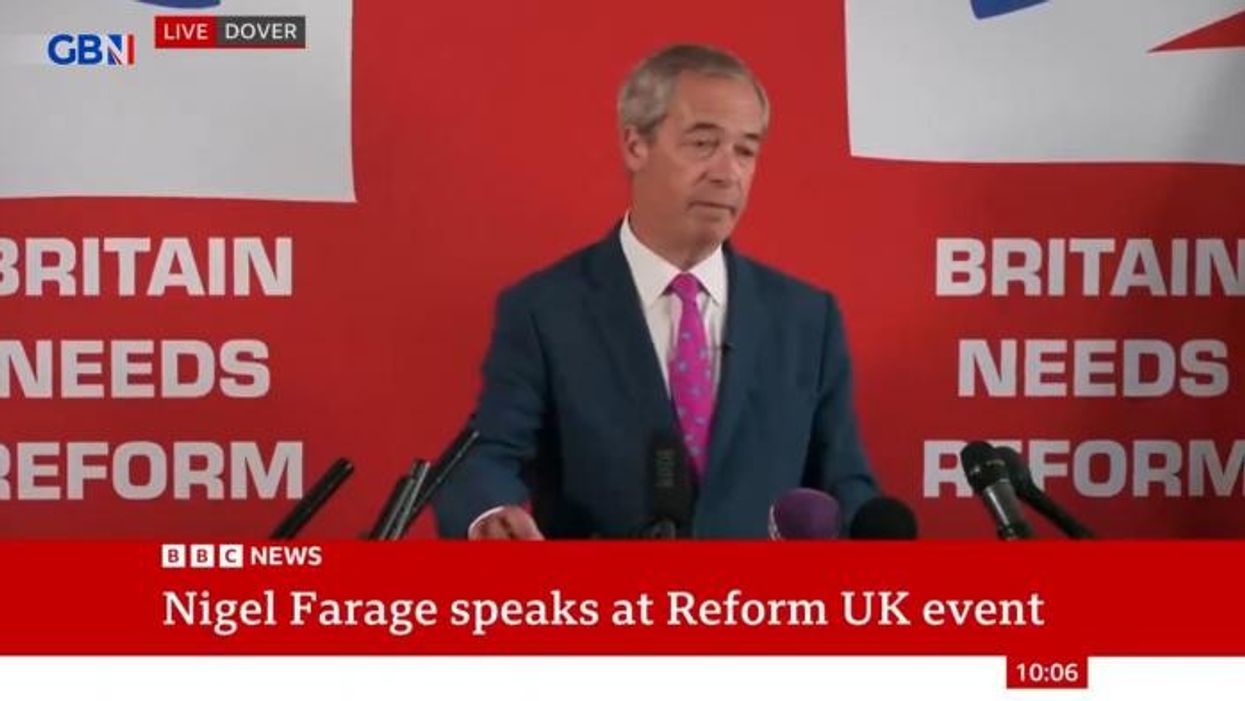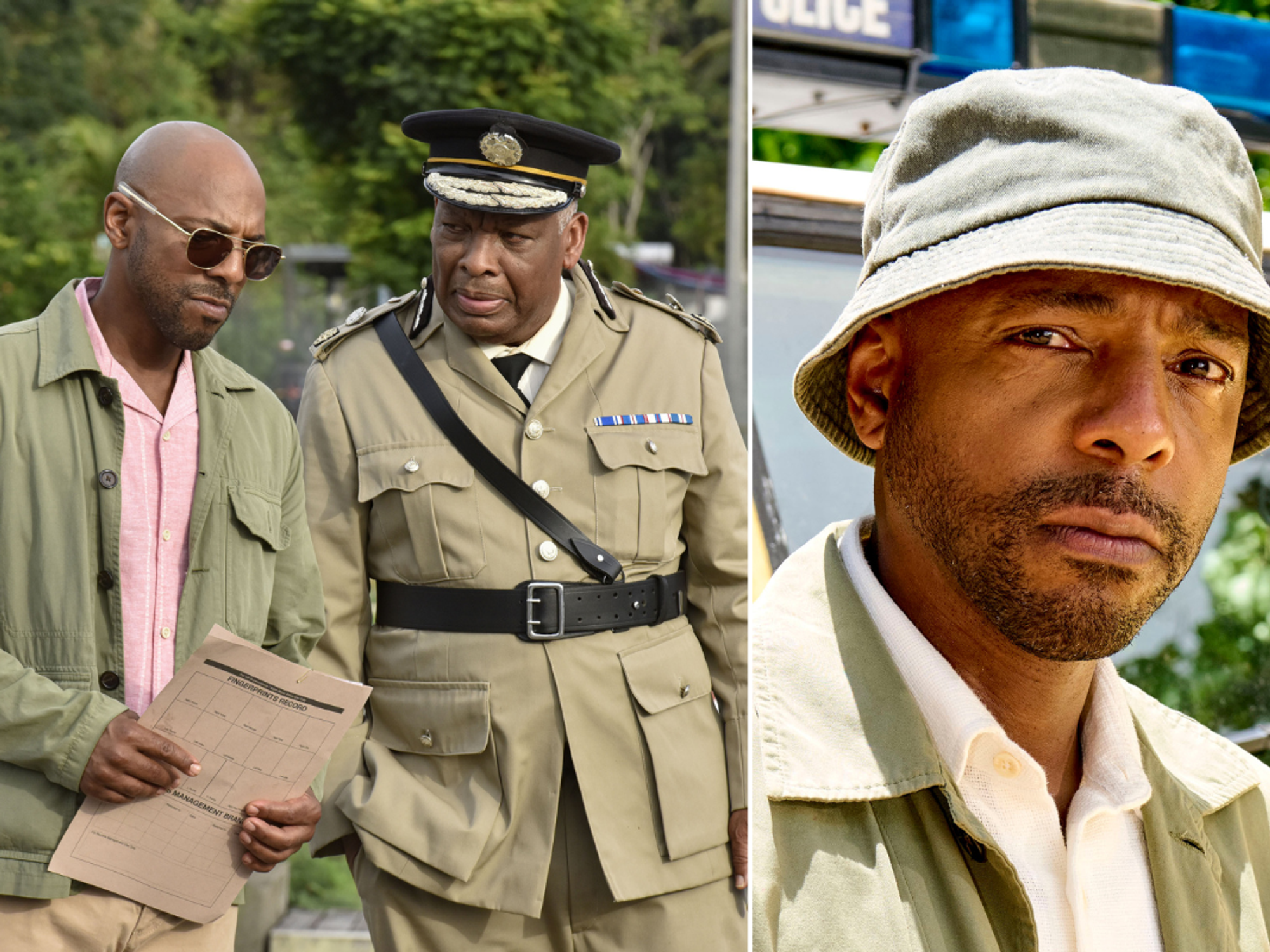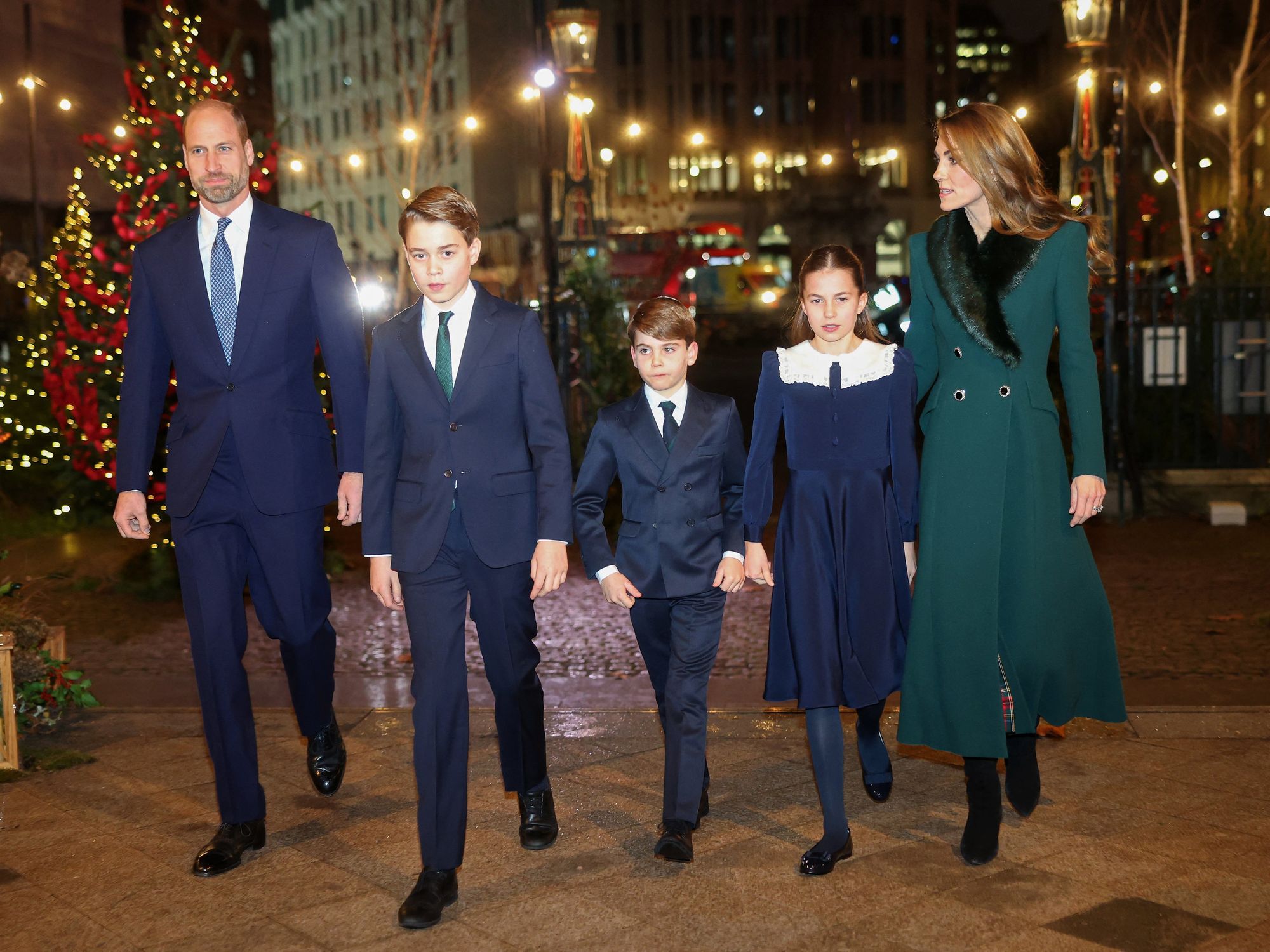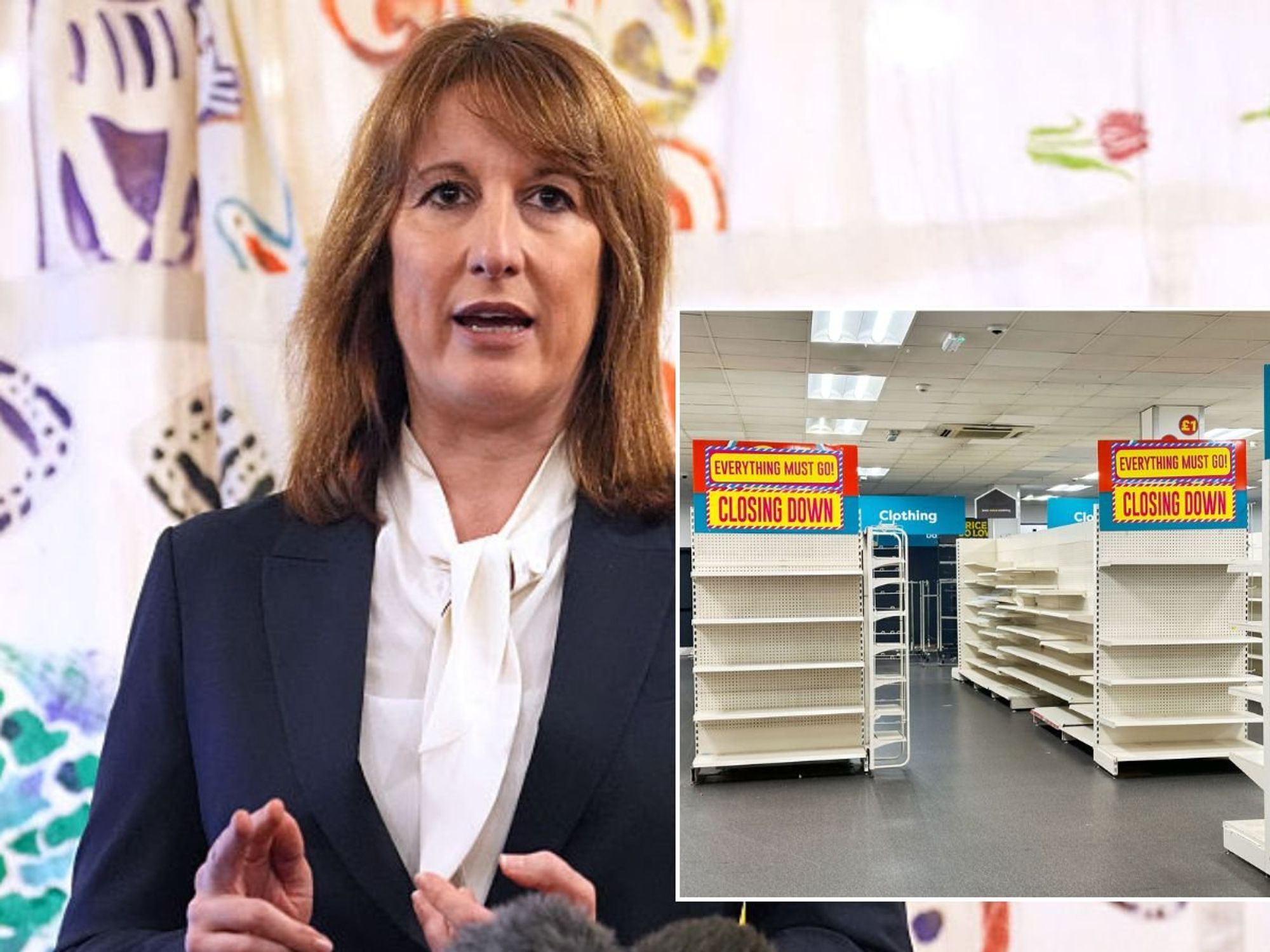Nigel Farage hits back as BBC presenter accuses him of ‘customary inflammatory language'
The BBC presenter made the remarks live on air following Nigel Farage's speech at a Reform UK press conference in Dover today
Don't Miss
Most Read
Latest
Nigel Farage has hit back on social media after a BBC presenter accused him of "customary inflammatory language" on BBC News today.
BBC News had been showing the honorary president of Reform UK speaking at the launch event for Reform’s Dover candidate today.
During his speech, Farage said: "The wave - and I'm using his words, not mine - of aggressive young males that are coming into Poland, having crossed the Mediterranean, and he has said that this is now a matter of national security."
BBC News then cut to presenter Geeta Guru-Murthy, who told viewers: "Nigel Farage with his customary inflammatory language there, at a Reform UK press conference.
"He declined to stand for a seat but we will have more on what Farage is saying."
Farage hit back at the accusation today, posting the clip on social media.
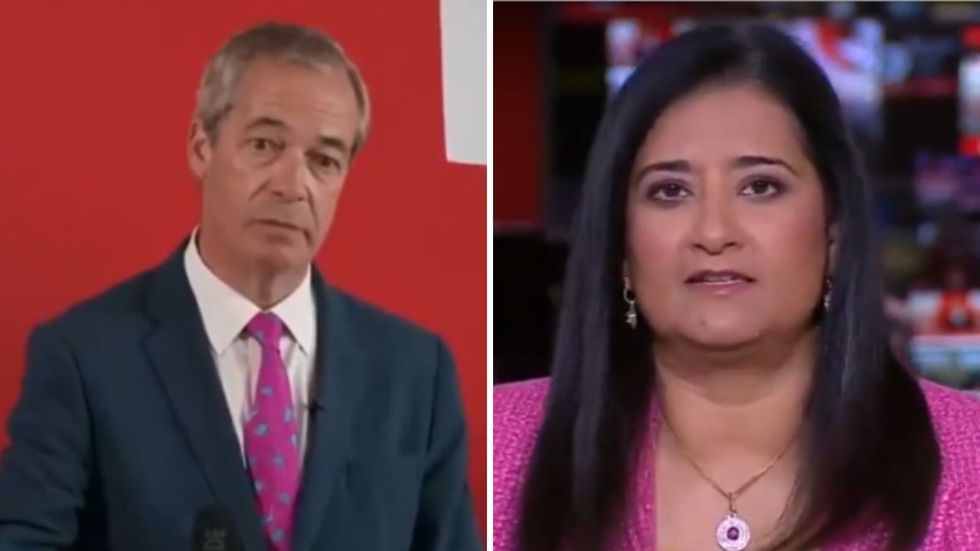
Nigel Farage has hit back at the BBC News presenter's comment
|BBC
On X, formerly Twitter, he wrote: "What happened to impartiality @Geetagurumurthy and @bbcpress?
"BBC News presenter, Geeta, just accused me of ‘customary inflammatory language’ when I was quoting Polish PM Donald Tusk at a press conference."
Prime Minister Donald Tusk demanded action be taken to strengthen Poland's border with Belarus earlier this year.
Tusk claimed: “These are not refugees, there are less and less migrants.
"In eighty cases out of a hundred, we are dealing with organized groups of very aggressive young men between the ages of 18 and 30.”
Writing on social media, one person write: "Whilst Nigel Farage was making his speech, the BBC cut away from it and a BBC News Chief presenter said 'Nigel Farage there with his customary inflammatory language'.
"This is far from impartial and completely biased. She needs to be suspended or sacked."
However, others disagreed, with a social media user commenting: "Farage did use and often uses provocative language.
"There was no indication of bias in the report."
BBC guidelines state: "Presenters, reporters and correspondents are the public face and voice of the BBC – they can have a significant impact on perceptions of whether due impartiality has been achieved.
READ MORE:
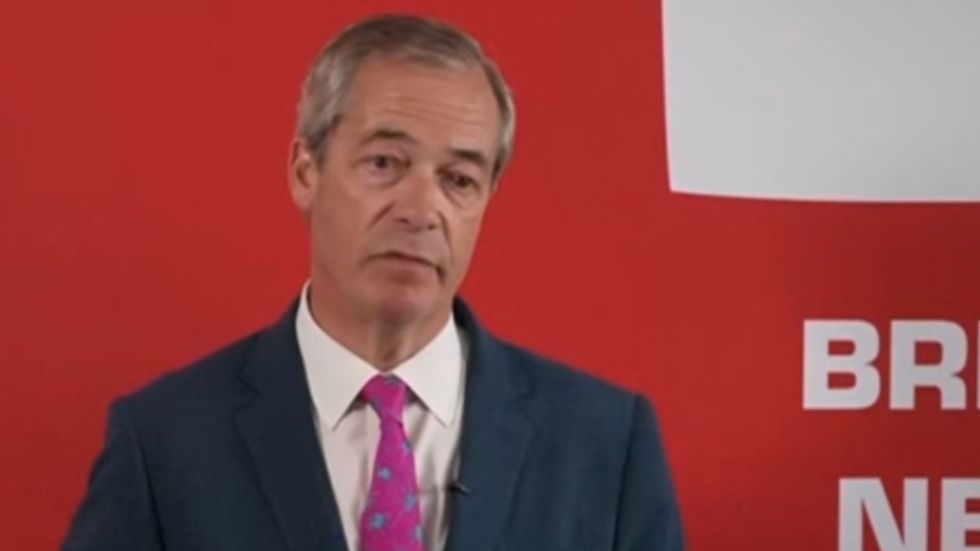
Nigel Farage delivered a speech at a Reform UK event in Dover
|BBC
"Our audiences should not be able to tell from BBC output the personal opinions of our journalists or news and current affairs presenters on matters of public policy, political or industrial controversy, or on ‘controversial subjects’ in any other area.
"They may provide professional judgements, rooted in evidence, but may not express personal views on such matters publicly, including in any BBC-branded output or on personal blogs and social media."
At the end of the programme, Guru-Murthy issued an apology for the remark.
She said: "Now an apology. Earlier today we heard live from Nigel Farage, speaking at that election event we just saw.
"When we came away from his live speech, I used language to describe it which didn’t meet the BBC’s editorial standards on impartiality. I’d like to apologise to Mr Farage and viewers for this."


